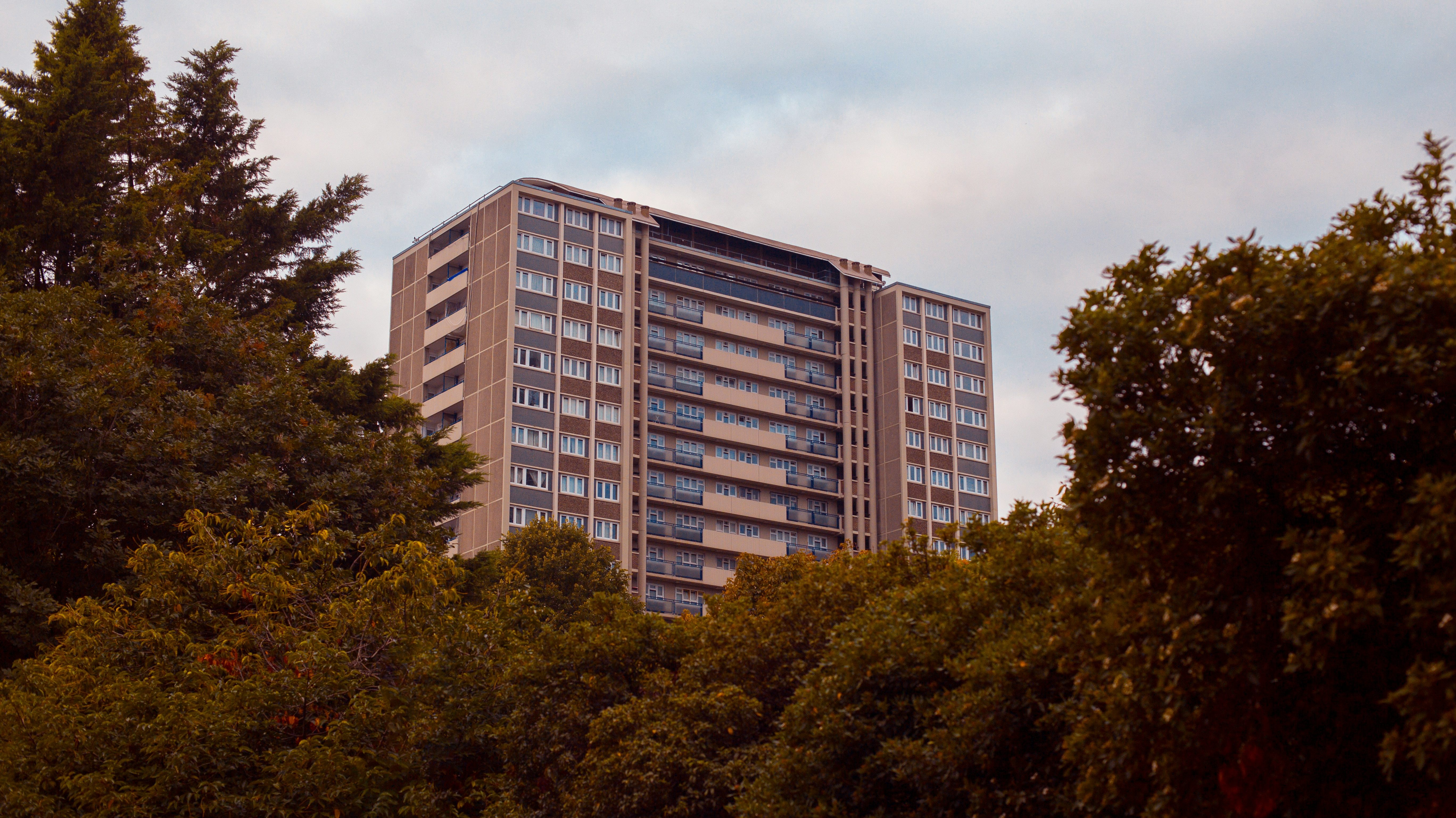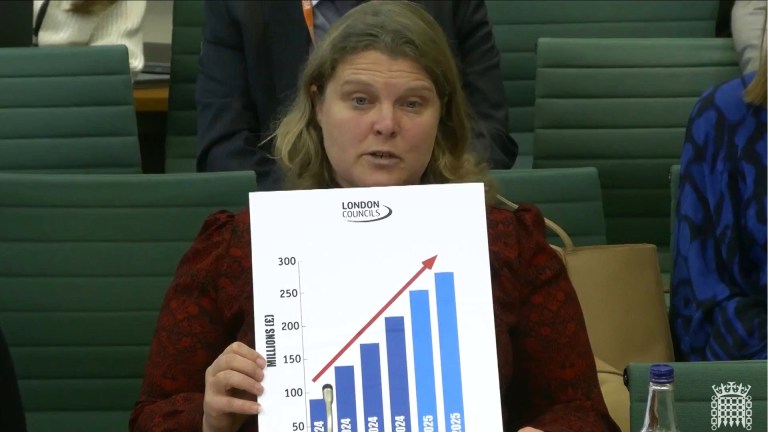This law also says that, if you’re paying service charges before works have been done, “no greater amount than is reasonable” needs to be paid, and any adjustments can be done after the fact – through adjustments or repayments. Again, if you’re being asked to cover works in advance, this sum must be reasonable.
Check what you’re supposed to be paying
Not everyone has to pay the same amount of service charges, and there’s no template to apply from property to property.
Leaseholders will have an “apportionment” – a proportion of the bill for work you are liable for. It may not be the same as the number of flats in your block, so it’s worth checking your lease.
Your lease will also say which works and areas you are responsible for. These are what are known as “recoverable” costs. For social housing tenants, your tenancy agreement will lay out whether you need to pay service charges, and if so, what your liability is.
If you are paying for works which didn’t happen, works you’re not liable for, or a greater proportion of the bill than you should, there might be grounds for a dispute.
You also don’t have to pay the additional cost of works where neglect has increased this cost.
Advertising helps fund Big Issue’s mission to end poverty
Get a breakdown of your service charges
Landlords legally have to provide a summary of relevant costs, so request this. It can help you see what the overall bills are.
Under section 22 of the Landlord and Tenant Act 1985, you can also request inspection of the receipts and invoices behind the summary, and the landlord must provide this for free. However, you are not necessarily entitled to your own copies of these documents.
Although it is not legally binding, the government has said housing associations and councils should try to stop service charges rising by more than 7% a year.
Check the works and services have not been paid for elsewhere – what’s known as “double recovery“. If funding has come from an insurance payout or the public sector, you may have grounds to claim money back.
Do everything in writing
This may seem obvious, but get everything down in writing. Try to correspond over email where possible. Offers for compensation may be made over the phone – but it’s not unheard of for the amount to mysteriously change when it’s written down.
If meetings or calls take place in person, send a list of the points discussed to the other parties afterwards, and ask them to let you know if their account differs. This is not as good as written evidence, but better than nothing.
Advertising helps fund Big Issue’s mission to end poverty
Make sure you’ve been given the proper paperwork
Notification of service charges needs to be served correctly. Section 21b of the Landlord and Tenant Act 1985 means you can withhold service charges where a service charge bill has not been accompanied “by a summary of the rights and obligations of tenants of dwellings in relation to service charges”, and you can do so without penalty.
Your lease may also lay out how your landlord must communicate with you, for instance giving you cost estimates before the works are done, or to have a surveyor verify the costs of the works.
Try to stay organised from the start: the process may involve a mountain of paperwork, and a maze of files and folders on your computer. But once you’ve established a paper trail, you’ll know where you stand.
Get together with your neighbours
Service charges usually cover works affecting multiple properties. This means your neighbours are likely to be in the same boat. There’s power in numbers, so talk to them. You may be able to jointly send letters, and increase the pressure on your managing agent.
Raise any issues with your managing agent
If you’ve spotted any issues with your service charges – say you’re paying more than your lease or tenancy agreement sets out, or work has been done to a poor standard – then there’s action you can take.
Ideally, you will be able to resolve things without the need to go further. This involves getting in touch with your landlord or managing agent. In the first instance, raise an inquiry over the service charges – try and get information on why you’re being charged, and how it’s been calculated.
Advertising helps fund Big Issue’s mission to end poverty
If you’re not happy with this, check their complaints process and follow that.
It’s important to be clear. Lay out the specific charges you are disputing, and why you believe they are unreasonable. Include any supporting evidence, such as pictures of work that has been done to a poor standard.
The Housing Ombudsman can investigate some aspects of service charges
If you’re not satisfied with the outcome, you can complain to the Housing Ombudsman. However, the ombudsman’s powers are limited.
They can look into how your landlord has handled your enquiries, and whether you are getting the level and standard of service you are paying for. They can also investigate how fees have been worked out.
However, they are unlikely to be able to do anything about the levels of service charges, or increases.
An application to the First-tier Tribunal is the next step
If your landlord does not resolve your complaints to your satisfaction, the next step is a tribunal. It’s technically known as the First-tier Tribunal (Property Chamber – Residential Property).
Advertising helps fund Big Issue’s mission to end poverty
You can only pursue this option for variable service charges, not fixed service charges – as these are contractual. Comprehensive guidance on the process is available on the government website.
The case begins with an application form. From there, some cases will be dealt with by “paper determination”, purely on written evidence submitted. However, others will be dealt with in person through a “case management conference”. In other words, your day in court.
The tribunal route can get expensive: £100 to apply and £200 for a hearing, although help is available for those on low incomes or benefits through application form EX160. Your case won’t proceed until the fees have been paid.
You usually won’t have to pay costs if you lose – although your lease may allow your landlord to bill you for any costs. And if you’re deemed to have acted unreasonably, the courts and tribunals service warns of “serious consequences”, including paying the other side’s costs. So think about whether pursuing you claim may draw you into that territory.
Could a service charge strike be the right option?
Going on service charge strike is a big option, and not one to be taken lightly. It can lead to eviction for tenants, and forfeiture for leaseholders. But it is also getting results when residents band together.
In some cases you can lose your home, but this is governed by strict rules. Tenants cannot be evicted for disputed charges – only when the tenant has admitted the charges, or a court or tribunal has agreed on the charges. Leaseholders can’t have forfeiture applied for sums of £500 or less, under section 167 of the Commonhold and Leasehold Reform Act 2002.
Advertising helps fund Big Issue’s mission to end poverty
One group coordinating service charge strikes is the Social Housing Action Campaign (SHAC). For those going on strike, they recommend you switch to a standing order, tell your landlord why you’re doing it, keep correspondence, tell your MP and councillors, contact SHAC if you get legal threats and set the money aside.
Keeping money aside is important: you can be taken to court if you’re more than eight weeks in arrears, so one tactic is to keep yourself within this eight week limit, says SHAC’s Suz Muna.
“The most direct option is for tenants and residents to submit a complaint to the landlord and if it is not resolved within a reasonable timescale – we would suggest four weeks – is to withhold payment of the disputed amount,” says Muna.
“SHAC is able to advise on how to do this safely and as part of a collective which minimises risk. Tenants just need to make it clear to the landlord that they are willing to pay service charges which are fair, accurate, and legitimate.”










